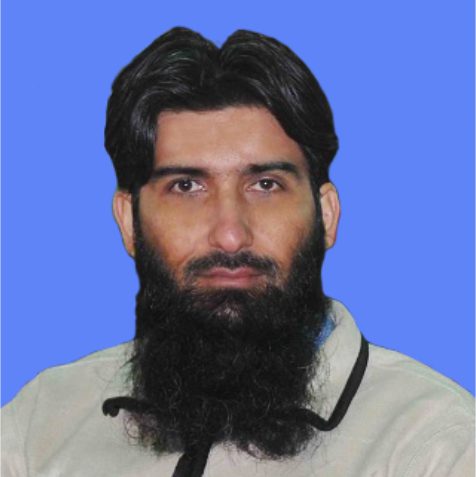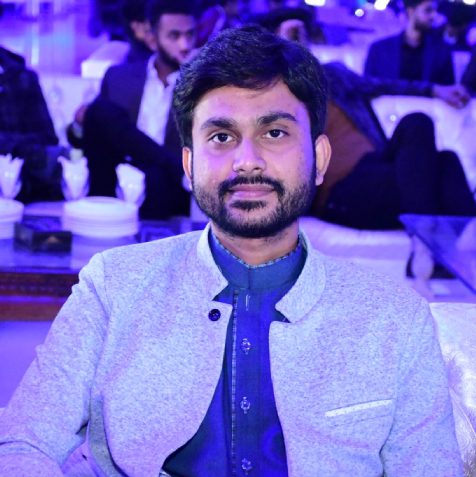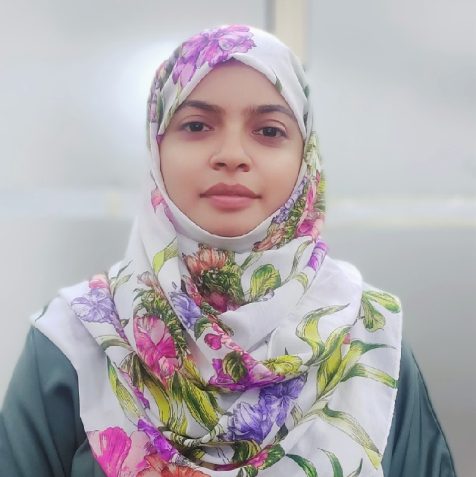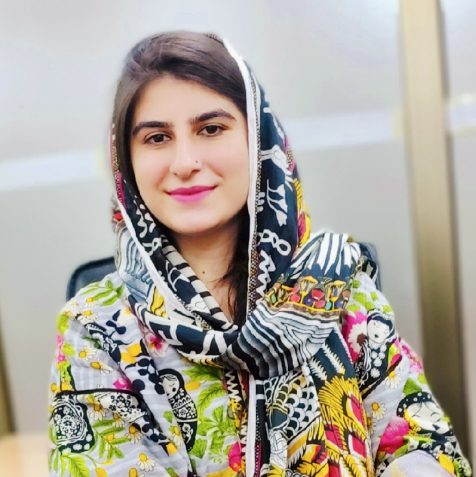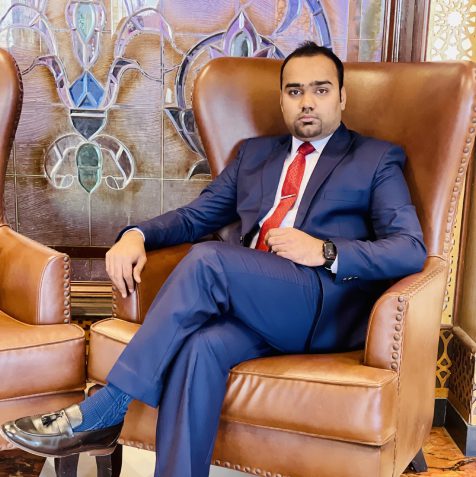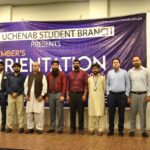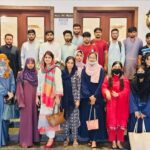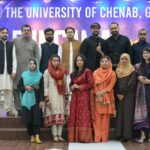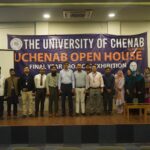- Computer Sciences (MS)
Duration
2 Years (4 Terms)
Qualification
Master of Sciences in Computer Sciences
Credit Hours
31
Start Date
Spring and Fall
Introduction to MS CS Program:
Master of Science in Computer Science at the University of Chenab is an advanced-level graduate research degree program for technically minded students who aim to conduct research-related activities in computer science fundamentals. Our Master’s degree is a full-time, two years program that provides a comprehensive knowledge of coursework as well as a research component. It aims at strengthening the understanding of students for constructing computer programs including key technologies and skills needed for strong theoretical foundations and the practical ability to develop systems and products. This course is particularly designed to give you an insight into different areas of computer science, which includes computer security, machine learning, internet protocols, networks, artificial intelligence, advanced algorithms, Scientific computing, software technology, data science, theoretical computer science as well as research methodology. While studying with us, you can pursue careers at the frontline of modern software technologies in leading software houses, commercial sectors, or working at advanced technology companies. With specialization, you will also be prepared for a career in research or continued studies towards a doctoral degree. This degree will help you to understand and grasp deep knowledge of user experience and computer interactions, information security management, data mining, cognitive neural networks, object-oriented programming, and web-based information system developments. Our computer science modules are indicative of a wide range of courses with the possibility to specialize in different subjects. The course structure offers a flexible mixture of core/compulsory and optional modules. Though students may get an option to add a year to a research exchange program which enhances their knowledge and help them in future.
MS CS Program Objectives:
- Students will be able to possess advanced knowledge of Computer Science field
- Students will be able to think creatively and critically; to solve non-trivial problems
- Students will be able to use computing knowledge to develop efficient solutions for real life problems
- Students will be able to design solutions and can conduct research related activities
Eligibility Criteria:
Before applying for a degree, you should first check that we recognize your undergraduate education qualification. Degree in relevant subject, earned from a recognized university after 16 years of education with at least 60 % marks or CGPA of at least 2.0 on scale of 4.0
The following core courses are recommended to be completed before entering the MSCS program.
- Analysis of Algorithms
- Assembly Language / Computer Architecture
- Computer Networks
- Computer Programming
- Data Structures
- Database Systems
- Operating Systems
- Software Engineering
- Theory of Automata
A student selected for admission having deficiency in the above stated courses may be required to study a maximum of FOUR courses, which must be passed in the first two semester. Deficiency courses shall be determined by the Graduate Student Committee, before admitting the students.
A student cannot register in MS courses, unless all specified deficiency courses have been passed.
Admission Test:
- Student must pass a rigorous admission test as an eligibility condition for admission to MS programs, with a passing score of 50 %.
- Accept the GRE/HAT General/Equivalent tests, with a passing score of 50 %.
Scheme of study for MS Computer Science:
| Course | Cr Hrs |
| Semester – 1 | |
| Core Course – I | 3 |
| Core Course – II | 3 |
| Elective – I | 3 |
| Total | 9 |
| Semester – 2 | |
| Core Course – III | 3 |
| Core Course – IV | 3 |
| Elective – II | 3 |
| Research Methodology* | 1 |
| Total | 10 |
| Semester – 3 | |
| Elective – III | 3 |
| MS Thesis-I / Elective IV | 3 |
| Total | 6 |
| Semester – 4 | |
| Elective-V | 3 |
| MS Thesis-II / Elective-VI | 3 |
| Total | 6 |
Core Courses for MS (Computer Science)
At least four courses must be taken from the following
- CSC-6013 Advanced Analysis of Algorithms
- CSC-6023 Advanced Operating Systems
- CSC-6033 Theory of Programming Languages
- CSC-6043 Theory of Automata – II
- CSC-6053 Advanced Computer Architecture
Registration in “MS Thesis – I” is allowed provided the student has
- Earned at least 18 credits
- Passed the “Research Methodology” course; AND
- CGPA is equal to or more than 2.5.
This program has vast canvas of following specialization areas.
- Data Science
- Machine Learning
- Artificial Intelligence
- Cyber Security
- Computer Networking
- Mobile Application Development
- Web Application Development
In MSCS we use various methods of teachings through classroom activities including a combination of lectures, tutorials, lab sessions, seminars, workshops, online learning, and independent study.
This program structure is comprised of a total number of fifteen to sixteen lectures and about 3 hours per week will be allocated for teaching. You will be guided al about the studies, mainly about time for preparing classes, completion of research projects, and reading of primary texts. This program is taught in an appropriately positive learning environment for quality composing work to take place.
Our Computer Science (MS-CS) degree is undertaken in a better, more open, and more connected environment to keep more students engaged in a classroom.
Mainly evaluation will be concluded by extensive monitoring of written examination and course work completion along with routine quizzes, individual assignments, and group tasks such as writing, research and presentation.
The minimum duration for completion of an MS degree is Two years. As allowed by HEC, it can be completed in a maximum period of four years.
Award of Degree:
For award of MSCS degree, a student must have:
- With Thesis:
- Passed courses of 25 credit hours including core courses and research methodology course + 6 credit hours of MS Thesis.
- Obtained a CGPA of 2.5 or above.
- Without Thesis:
- Passed courses totaling at least 30 credit hours, including four core courses
- Obtained a CGPA of 2.5 or above.
- Graduates from this course can have high-profile careers as:
Programmers and software development professionals - Consultants and Business analysts
- System Designers
- IT consultant
- Data analyst
- Researcher
- Academic
- Game developer
Helping you find the right career
We have the facilities of devoted career counselors who help you to select your career choices and assist you in preparing for various recruitment programs. You can also be a part of career fest programs which are an interactive session with the recruiters so, you can understand their requirements and recruitment criteria.
For clearing any ambiguities visit Office of student affairs, The University of Chenab, Gujrat.
Mainly tuition fees majorly covers our study cost, which includes assessment and teaching. Advanced fees are taken before the academic semester. If the university takes fees directly then you can choose the installment methods to pay your fees.
Additional course costs
You may be charged an extra cost of additional things such as books, stationery, recreational and study trips, and other materials.
Fee Structure Fall 2024
| Courses | CrdHrs | Tuition Fee/CrdHr | Tuition Fee/Semester | Enrollment Fee (500 per Course) | Examination Fee (500 per Course) | Medical Diagnostic Charges (500 per Semester | Societies & Club Fee(2500 per Semester) | Total Fee For Semester |
| 3 | 9 | 12,700 | 114,300 | 1,500 | 1,500 | 500 | 2,500 | 120,300 |
| 4 | 10 | 12,700 | 127,000 | 2,000 | 2,000 | 500 | 2,500 | 134,000 |
| 3 | 9 | 13,200 | 118,800 | 1,500 | 1,500 | 500 | 2,500 | 124,800 |
| 1 | 3 | 13,200 | 39,600 | 500 | 500 | 500 | 2,500 | 43,600 |
| 11 | 31 | 399,700 | Total Semesters Fee | 422,700 | ||||
| Registration Fee (payable once – Non Refundable) | 20,000 | |||||||
| Total Fee | 442,700 |
MS thesis evaluation fee is 20000.
Funding
We offer several fully and partially funded postgraduate scholarships to full-time postgraduate students. Many external organizations aid in this funding programs which increases the amount of scholarships. For more information about funding visit office of student affairs.
To be an international partner in computing education, research and development with our graduates impacting the society as computing professionals and entrepreneurs demonstrating professional integrity and leadership.
Department works with a clear mission to provide the country with trained resources for development of high-tech products and services and to exercise commercialization through incubation of high-tech companies.
- To produce best quality Computer Science & IT professionals and researchers by providing state-of-the-art training, hands on experience, and healthy research environment.
- To collaborate with industry and academia around the globe for achieving quality technical education and excellence in research through active participation of all the stakeholders.
- To promote academic growth by establishing Center of Excellences and offering inter-disciplinary postgraduate and doctoral programs.
- To establish and maintain an effective operational environment and deliver quality, prompt, cost effective and reliable technology services to the society as well as compliment the local and global economic goals.
- Making world class technology available to undertake large and complex IT Projects inPakistan.
- Exercising commercialization through incubation of high tech companies.
Currently, the Department is offering the following undergraduate and postgraduate degree programs:
2024
Ashraf, Z., Sohail, A., & Iqbal, M. (2024). Design and Implementation of Lightweight Certificateless Secure Communication Scheme on Industrial NFV-Based IPv6 Virtual Networks. Electronics, 13(13), 2649.
Mahmood, Z., Ashraf, Z., Iqbal, M., & Farooq, B. (2024). User-trust centric lightweight access control for smart IoT crowd sensing applications in healthcare systems. Personal and Ubiquitous Computing, 28(2), pp. 1-14.
2023
Ashraf, Z., Sohail, A., Hameed, A., Farhan, M., Alotaibi, F. A., & Alnfiai, M. M. (2023). Robust and Lightweight Remote User Authentication Mechanism for Next-Generation IoT-based Smart Home. IEEE Access 11, pp. 137899 – 137910
Ashraf, Z., Mahmood, Z., & Iqbal, M. (2023). Lightweight Privacy-Preserving Remote User Authentication and Key Agreement Protocol for Next-Generation IoT-Based Smart Healthcare. Future Internet, 15(12), 386.
Ashraf, Z., Sohail, A., & Yousaf, M. (2023). Lightweight and authentic symmetric session key cryptosystem for client–server mobile communication. The Journal of Supercomputing, 1-25.
Ashraf, Z., Sohail, A., & Yousaf, M. (2023). Robust and lightweight symmetric key exchange algorithm for next-generation IoE. Internet of Things, 22, 100703.
Ashraf, Z., Sohail, A., Latif, S. A., Pitafi, A. H., & Malik, M. Y. (2023). Challenges and Mitigation Strategies for Transition from IPv4 Network to Virtualized Next-Generation IPv6 Network. Int. Arab J. Inf. Technol., 20(1), 78-91.
Butt, U. M., Arif, R., Letchmunan, S., Malik, B. H., & Butt, M. A. (2023). Feature Enhanced Stacked Auto Encoder for Diseases Detection in Brain MRI. Computers, Materials & Continua, 76(2).
Ikram, A., Butt, M. A., & Tariq, I. (2023). Comparative Analysis of Regression Algorithms used to Predict the Sales of Big Marts. Journal of Innovative Computing and Emerging Technologies, 3(1).
Butt, M. A., Danjuma, S., Ilyas, M. S. B., Butt, U. M., Shahid, M., & Tariq, I. (2023). Demand Prediction on Bike Sharing Data Using Regression Analysis Approach. Journal of Innovative Computing and Emerging Technologies, 3(1).
2022
Butt, U. M., Ullah, H. A., Letchmunan, S., Tariq, I., Hassan, F. H., & Koh, T. W. (2023). Leveraging Transfer Learning for Spatio-Temporal Human Activity Recognition from Video Sequences. Computers, Materials & Continua, 74(3).
Butt, U. M., Letchmunan, S., Hassan, F. H., & Koh, T. W. (2022). Hybrid of deep learning and exponential smoothing for enhancing crime forecasting accuracy. Plos one, 17(9), e0274172.
Baig, R., Rehman, A., Almuhaimeed, A., Alzahrani, A., & Rauf, H. T. (2022). Detecting malignant leukemia cells using microscopic blood smear images: a deep learning approach. Applied Sciences, 12(13), 6317.
Fatima, M., Rextin, A., Nasim, M., & Yusuf, O. (2022, October). Digital Information Seeking and Sharing Behaviour During the COVID-19 Pandemic in Pakistan. In Multidisciplinary International Symposium on Disinformation in Open Online Media (pp. 44-62). Cham: Springer International Publishing.
Prince Sultan University, Riyadh, Saudi Arabia
King Saud University, Riyadh, Saudi Arabia
Taif University, Taif, Saudi Arabia
- University of Kotli, Kotli, Azad Jammu & Kashmir
- IQRA University, Islamabad Campus, Islamabad
- RIPHAH University, Islamabad Campus, Islamabad
- COMSATS University, Sahiwal Campus, Sahiwal
Department of computer science has built strong linkage with industry and signed various MOUs with different software houses for jobs and internships.
Recently the University of Chenab has signed MOUs with following software houses.
- KMS Enterprise Solutions in Canada
- Techno Verse
- Twin Spider
- Dev Valley
- Cipher Coders
- Soft Pin
- Huawei ICT Academy
- Gujrat Chamber of Commerce and Industries
Led By
Peaceful ambience, agile teaching as well as non-teaching staff, and a disciplined yet enjoyable and motivating atmosphere. Welcome to the University of Chenab. We produce professionals who are adept in their disciplines. Our institution is not only concerned with grades and education, but also take care of mental well-being of our students.
The University of Chenab
Our Mission
The University of Chenab represents excellence in teaching, research, scholarship, creativity and engagement. Its mission is to produce professionals outfitted with the highest standards in creativity, transfer and application of knowledge dissemination to address issues of our time.
The UChenab sculpts its graduates to become future leaders in their fields to inspire the next generation and to advance ideas that benefit the world.
The University of Chenab
Our Vision
The University of Chenab, Gujrat aspires to become a nationally and internationally recognized university that distinguishes itself as an embedding center for outstanding ethical and moral values, teaching quality, learning outcomes, and richness of the student experience.
The University of Chenab, Gujrat envisions a transformative impact on society through its continual innovation in education, creativity, research, and entrepreneurship.
Finding Your
Course
- Visit (Website link admission tab) and search your respective course and department on this website.
- Check the admission criteria and learn about the eligibility criteria of your selected course.
- If you are confused about the fee structure visit our fee guide at (link)
- To search more about the campus and studies visit other events and tabs to learn about the latest news and events.
- Still if there are any ambiguities then contact our admission office.
Apply Online
- Search the page and select your course scroll to the menu and click on and option ‘Apply.’
- Fill the online application form with the required attachments.
- After the form is submitted then you’ll receive a confirmation email. Confirm your application which is then processed forward.
In-Campus Test
- After the acceptance of the online registration a date and time is allocated for an in-campus test.
- You must bring your original attested documents on your test day.
Results And Enrolment
- After sometimes the results are out so constantly check your email for the notification.
- Visit the campus for enrolment.
Final Steps
- After the enrolment attend your orientation day as it is an interactive session among students and the faculty.
- Then, receive your timetable.
- Finally, start a new step of your carrier.

